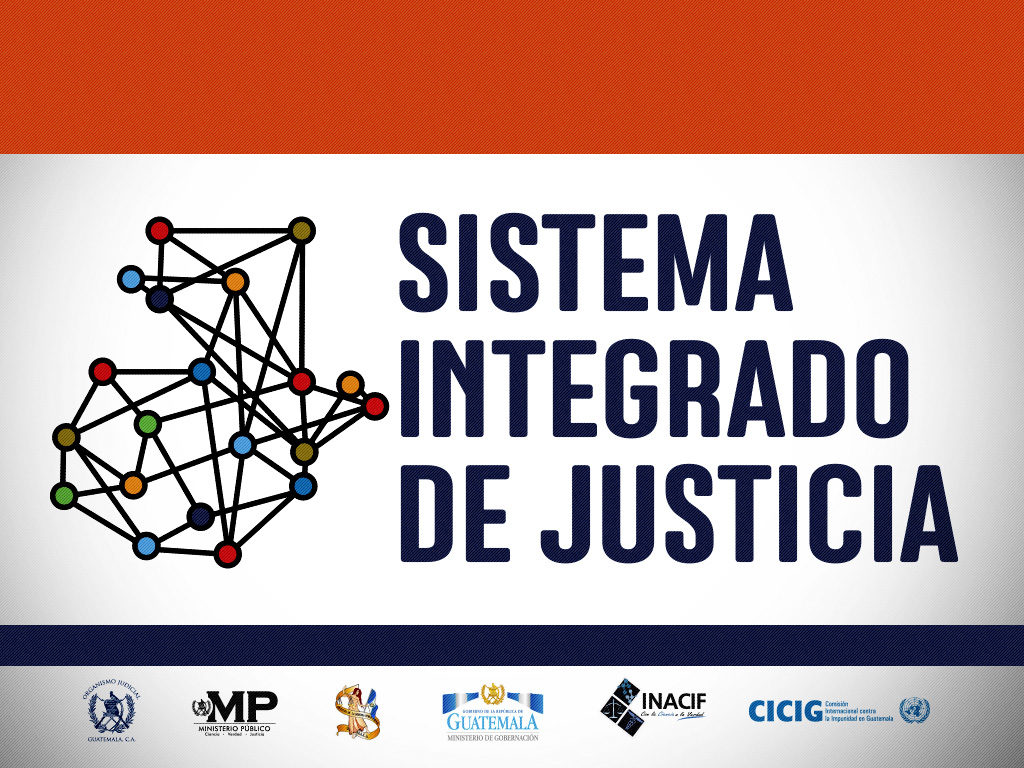ARTICLE 001 | Photo: CICIG.
The Integrated Justice System (Sistema Integrado de Justicia, SIJ) is aimed at identifying suitable institutional mechanisms and adjustments that will reduce the levels of impunity in the country by measuring the efficiency and effectiveness of justice, initially focused on the criminal area.
It is a space promoted by the Judiciary, the Attorney General’s Office, the Center for Criminal Defense, the Ministry of the Interior and the National Institute of Forensic Sciences, with the technical support of CICIG, aimed at providing specialized advice and high-quality information for decision-making in the justice sector.
As part of the project, an unprecedented computer system was created with the capacity to display inter-agency information and measure indicators related to efficiency, effectiveness, and impunity for all crimes in each municipality of Guatemala, 2008-2016.
Therefore, the Integrated Justice System presents the following results for its first work report:
Quantitative
- The crimes against women have increased their frequency (going from 111 reported cases per 100,000 inhabitants in 2008 to 386 in 2016).
- On average, 428,107 cases are filed every year, and the number increased from 223,042 to 330,395.
- The number of cases with favorable outcome (judgment, opportunity criterion or suspension of admitted criminal prosecution) has risen from 7,830 to 30,338 in absolute values and from 3.51% to 9.47%, showing a remarkable improvement in performance.
- In 2008-2016, the total impunity for all crimes was 92.86%; the annual rate was 96.40% in 2008 and 90.87% in 2016 (implying then a reduction of 5.53%). Therefore, the trend would be an average reduction of 0.7% per year.
- The annual effectiveness of the justice system has grown from 3.6 percent in 2008 to 9.8 percent in 2015 – it was the year with the lowest registered impunity of 90.2%.
- For the period 2008-2016, the maximum impunity was registered in the department of Alta Verapaz with 96.26%, and the minimum in Sololá with 86.12%.
- It would be necessary to hire three times the staff available that year to investigate, prosecute and adequately defend the more than 300,000 possible crimes records, considering de the crime rates of 2016.
Qualitative Data
- The weakness of professional career systems, which make justice institutions vulnerable to any attack on their independence and impartiality, as well as prone to corruption. Also, for the generation of minimum capacities among the justice operators, in each institution.
- Slowness in the training of qualified staff, especially for INACIF experts and PNC and researchers, both of utmost relevance.
- Unequal growth in justice institutions, which affects access to justice, especially of the most vulnerable. It is evident in terms of regional presence, by subject, among others.
- Weak sectoral planning.
- Insufficient internal coordination in institutions.
- The concentration of funds and resources in the department of Guatemala.
- Corruption, threats, and pressures related to criminal networks; this could deepen at the local level.
- Procedural and administrative discretion to reproduce interpretations and practices that favor impunity.
- Problems during the hearings: inadequate programming, insufficient times, delays, the absence of a procedural part that overrides the proceedings (attorney, prosecutor, forensic expert, among others).
Main Recommendations
- Strengthen planning from a systemic-sectoral vision that allows the chain of justice to act in an articulated manner, in each institution.
- To optimize existing resources, with a view to improving the efficiency and effectiveness of the system; then, advocating for an increase in budget and investment that will allow it to face the growing demand for justice in the country.
- Improve the mechanisms of strategic management in institutions, from a sectoral platform that emphasizes the actions of internal monitoring and control, so the response capacity of each work unit can be analyzed.
- Consolidation and integration of official statistics of justice in Guatemala.

